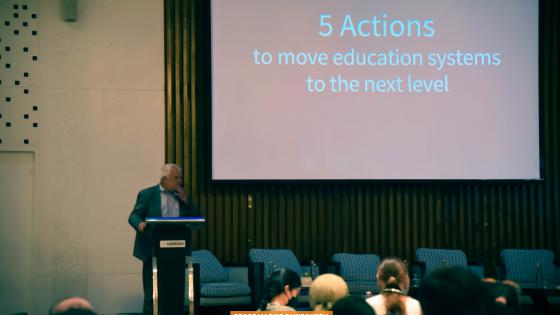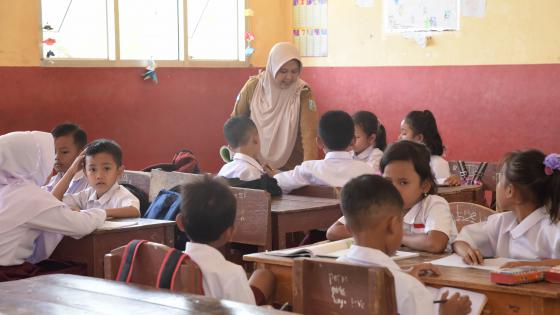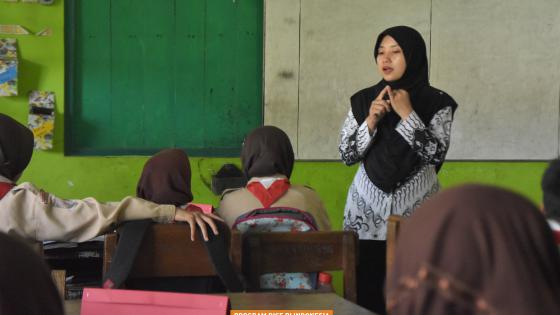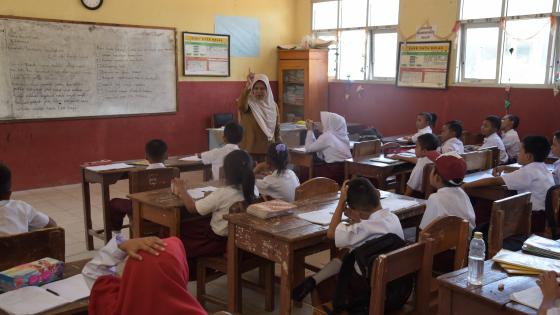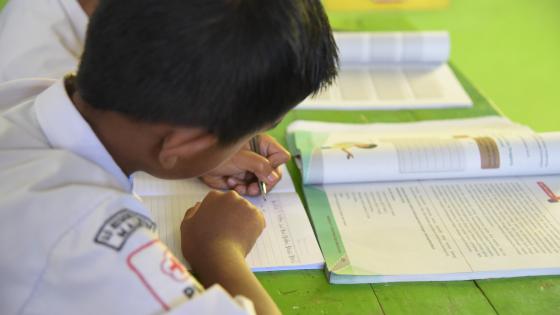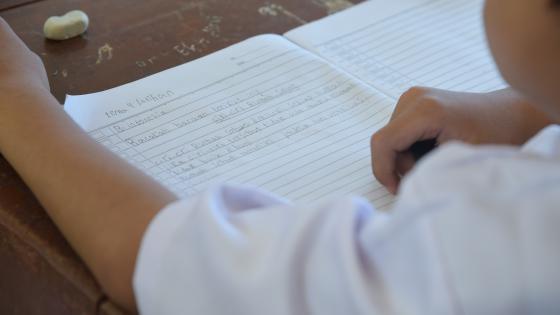Photo illustration: Novita Eka Syaputri
This article is part of the Teacher's Note series on memorable moments of teaching.
Experience is the best teacher—words of wisdom I’ve heard. Experience allows an uninformed to have knowledge. Experience gives importance to life because there is always wisdom behind every event.
It has been eight months since I started teaching at the primary school where I was assigned. I have gained a lot of experiences; two of them are the most memorable.
Carrying an Injured Student to the Public Health Centre
The first was when I took one of my students to puskesmas, the public health centre, and stayed with him while he had his injured leg stitched up. The student had fallen, tearing his trousers, and his leg was bleeding. His friends then called me when I was resting in the teacher's room. I took the injured student to the health centre for further treatment.
At the health centre, the doctor said the wound on my student’s leg needed stitching. I tried to call his mother, but she did not answer. So, I stayed with him while his leg was treated. I was lucky because my student was brave and did not cry. After the doctor finished stitching the wound, I took my student home.
Days after that incident, I noticed changes in that student. He became more obedient and affectionate towards me. His mother told me that her son said he would feel at loss if he didn’t go to school. During class lessons, he also became more attentive. Before, he was an average student. By the end of the semester, his scores improved. He still respects and cares for me until recently, even though I am no longer his homeroom teacher.
It was a memorable experience because it was the first time I took care of a badly injured child who needed a stitch. Injured kids usually only need to be treated with ointment or bandage. But what happened that day was different. I am responsible for whatever happens to my students while they are at school. I felt like I was being tested when that incident happened.
Afraid of being Questioned by Parents
The second memorable experience was also about responsibility, which happened after the second-semester final assessment. I had finished inputting all of my students’ grades into their report cards. A student who had been performing well, got lower grades. I did not realise at first that the child had been a high-performing student because the child did not really stand out in class.
I then heard that the child’s parents questioned their child's grades in detail. I became worried that I had input the child’s grades incorrectly and had been unfair to the child. I rechecked the student’s daily and final semester assessment several times, and the results were consistent. The child’s grades were indeed declining.
It was the first time I had a student’s parents question my decision. At the time, I was afraid that the parents would disagree with their child’s drastically declining grades. I was worried about being seen as a novice young teacher who was inexperienced and incompetent. I kept thinking about it that I got stressed. I even got heartburn and typhoid disease.
Eventually, the parents sent me a text message and asked about their child’s grades. Contrary to what I had thought, the child's parents did not criticise my decision. When they came to school to take their child’s report card, they told me that their child had been experiencing hearing problems and unable to focus in class.
Both experiences gave me lessons. I understand now that being a teacher is not an easy job; this profession carries challenges and responsibilities. But I will not overthink this responsibility. I will live in this profession and assume responsibility to the best of my ability.
*This Note was written by IK, a primary school teacher in Yogyakarta.
**All articles published in the Teachers' Notes are the views of the authors. They have been edited for popular writing purposes and do not represent the views of RISE Programme in Indonesia or RISE's funders.


